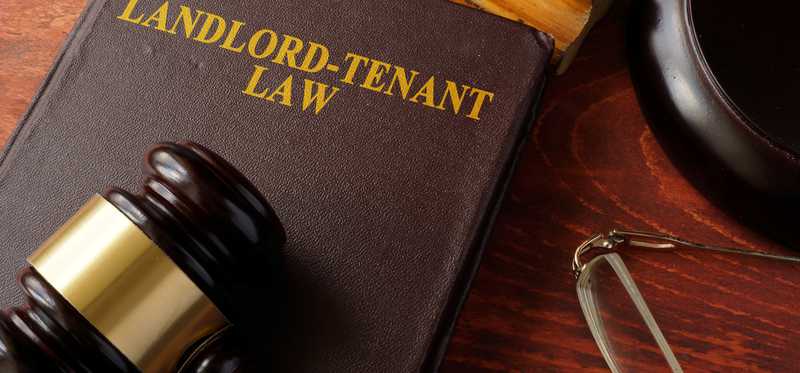7 Laws to Pay Attention to Before Buying a Rental Property

7 Laws to Pay Attention to Before Buying a Rental Property
Know what could be required of you as a landlord
Being a landlord can be very rewarding. Whether you're providing a long-term home or a short-term vacation rental, you get to earn income while creating and maintaining a space where people will make memories. You can even hire a property manager and make it a more passive endeavor.
If you're looking for your first or next rental property, there's a lot to keep in mind. From the surrounding community and proximity to stores and schools to the appearance and condition of the home itself, you have a lot to consider.
One thing that's often overlooked is the way local laws could impact your landlording experience. Let's explore some of the laws and regulations you'll want to learn about before purchasing a rental property.
5 Stocks Under $49
Presented by Motley Fool Stock Advisor
We hear it over and over from investors, "I wish I had bought Amazon or Netflix when they were first recommended by The Motley Fool. I'd be sitting on a gold mine!" It's true, but we think these 5 other stocks are screaming buys. And you can buy them now for less than $49 a share! Click here to learn how you can grab a copy of "5 Growth Stocks Under $49" for FREE for a limited time only.
Previous
Next

1. Are short-term rentals allowed?
While most areas still allow landlords to operate their homes as vacation rental properties, not all do. What draws people to an area can be a factor.
Especially in neighborhoods with a lot of bars and clubs nearby, many residents have become fed up with massive house parties and loud, drunk tenants wandering around at all hours of the night. And an increasing number of those disgruntled tenants have been working to enact legislation prohibiting vacation rental properties.
Even if you plan to rent exclusively to long-term tenants, it could be worthwhile to find out what your options might be if you change your mind down the line.
ALSO READ: What Hosts Need to Know About Airbnb's Winter Release
Previous
Next

2. Is there any form of rent control?
When you hear the term "rent control," you likely think of New York, and for good reason. But other cities also place caps on how much rent you can charge and/or how much you can increase it each year. You'll want to see whether this applies where you're interested in becoming a landlord. Even if you are able to charge the amount of rent you'd like to right now, restrictions on increases could leave you in a tough position down the road.
Previous
Next

3. How is the security deposit handled?
Different states have different rules about how much you can collect for a security deposit and what steps you have to follow to return or not return it to the tenant. The maximum is somewhere between the equivalent of one month's and three months' rent in most states, and several have no set maximum.
If you're renting to college students or are otherwise concerned about the possibility of rambunctious tenants, you may feel the low end of that range is inadequate.
Some cities also have their own rules around security deposits, so you'll want to check for those and make sure you feel that they're fair and won't require more work to comply with than you feel is reasonable.
Previous
Next

4. What is the eviction process?
You, of course, plan to do thorough tenant screening to increase the odds that your tenant will be every landlord's dream. But what if they aren't?
If your tenant doesn't pay, harasses or threatens the neighbors or your other tenants, or breaks your rules and/or the law, you may need to evict them. If the area where you're interested in buying makes eviction a much more difficult, drawn-out process than it is in most places, you'll want to know that up front so you can decide whether you're comfortable proceeding there.
ALSO READ: Rents Have Soared Over 10%. 3 Things You Can Do to Keep Up
Previous
Next

5. When might you have to pay relocation fees?
There are circumstances in which a landlord could be required to pay the tenant's costs to relocate, either temporarily or permanently. In most jurisdictions, this happens when the property becomes uninhabitable through no fault of the tenant.
Make sure you know going in what situations could prompt this potentially costly scenario. In Portland, for example, if a landlord chooses not to renew a lease, that's considered a "no-cause eviction" and puts the landlord on the hook for thousands of dollars in relocation fees.
5 Stocks Under $49
Presented by Motley Fool Stock Advisor
We hear it over and over from investors, "I wish I had bought Amazon or Netflix when they were first recommended by The Motley Fool. I'd be sitting on a gold mine!" It's true, but we think these 5 other stocks are screaming buys. And you can buy them now for less than $49 a share! Click here to learn how you can grab a copy of "5 Growth Stocks Under $49" for FREE for a limited time only.
Previous
Next

6. What are the rules around late rent fees and grace periods?
Of course, ideally, your tenant will always pay rent on time. Late fees and a limited grace period can help encourage them to do so and cushion the blow for you if they do pay late. Some cities place a cap on these items, and that's worth finding out about. An extremely low late fee or very long grace period can leave you with few options to motivate a consistently late-paying tenant.
Previous
Next

7. Do you have to register as a landlord?
In some locations -- like Washington, D.C., and Baltimore, Maryland -- you may have to register your rental property to be a landlord there. This can involve paperwork, fees, inspections, and ongoing steps to maintain your registration over time. You'll want to verify whether you would have to register rental property in your desired location and find out what all that process entails, both up front and in the long term.
Previous
Next

Make sure you know what you're getting into
Consulting with a real estate attorney while putting together a lease agreement is always a good idea. And if you don't already have an attorney, you may want to go ahead and introduce yourself to one now so they can give you all the info you need about the area you're rental-property shopping in. Or if you're comfortable doing the research yourself, that's an option, too.
What's important is that you take the time now to make sure all landlord/tenant laws that will apply to the property you're considering are agreeable to you and won't make the investment more trouble than you bargained for. Doing so could save you a great deal of time, headache, and regret later.
The Motley Fool has a disclosure policy.
Previous
Next
Invest Smarter with The Motley Fool
Join Over Half a Million Premium Members Receiving…
- New Stock Picks Each Month
- Detailed Analysis of Companies
- Model Portfolios
- Live Streaming During Market Hours
- And Much More
READ MORE
HOW THE MOTLEY FOOL CAN HELP YOU
-
Premium Investing Guidance
Market beating stocks from our award-winning service
-
The Daily Upside Newsletter
Investment news and high-quality insights delivered straight to your inbox
-
Get Started Investing
You can do it. Successful investing in just a few steps
-
Win at Retirement
Secrets and strategies for the post-work life you want.
-
Find a Broker
Find the right brokerage account for you.
-
Listen to our Podcasts
Hear our experts take on stocks, the market, and how to invest.
Premium Investing Services
Invest better with The Motley Fool. Get stock recommendations, portfolio guidance, and more from The Motley Fool's premium services.